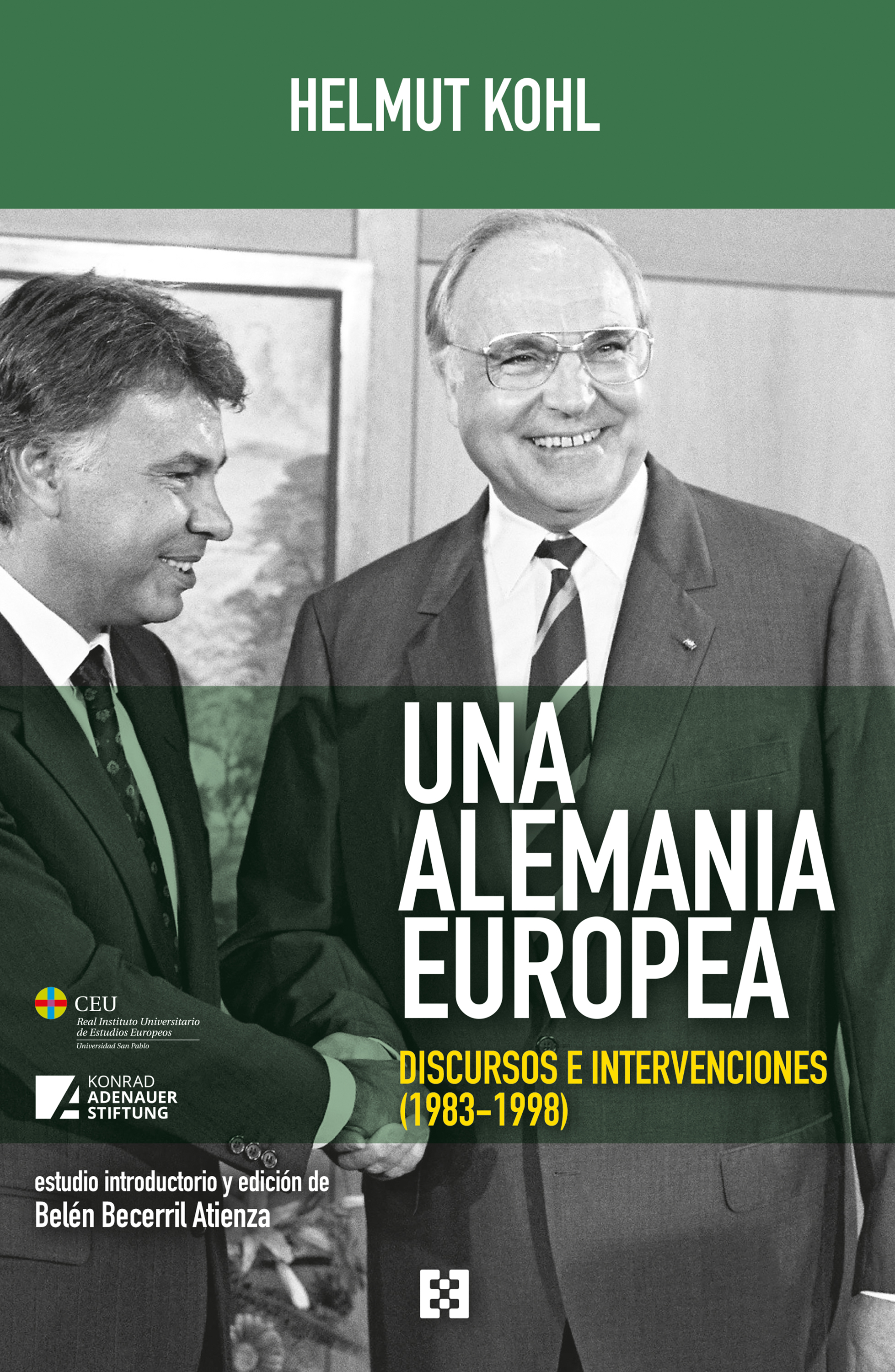HELMUT KOHL. "UNA ALEMANIA EUROPEA. DISCURSOS E INTERVENCIONES (1983-1998)"
- Author: Helmut Kohl
- Editorial: Ediciones Encuentro, with the collaboration of the Royal University Institute for European Studies and Konrad Adenauer Foundation
- Date: Madrid, 2020

"Una Europea alemana. Discursos e intervenciones (1983-1998)" is a work by Helmut Kohl, with an introductory study by Belén Becerril, and is the fourteenth in the collection 'Roots of Europe'. This book contains some of the most significant interventions of his political life, such as the debate on the installation of American missiles on German soil, his words after Gorbachev's support for reunification or the moving speech on unity before the Dresden crowd.
The "Chancellor of Unity", who achieved the reunification of Germany only eleven months after the fall of the Berlin Wall, was also an enthusiastic promoter of European unity from the beginning of his mandate. When the possibility of reunification was unexpectedly opened up in 1989, the Chancellor succeeded in winning the support of his Community partners by proposing that the move towards German unity should be accompanied by another step towards European unity. In his final years as Chancellor he was the main supporter of the single currency, which he hoped would make the integration process almost irreversible.
Special mention should be made of his speech on the occasion of the visit of the Spanish prime minister on 3 May 1983. Mr Kohl undertook to do his utmost to unblock the application for membership: "We will defend your interests". On that day the chancellor recalled the words of encouragement that a Spaniard had addressed to the Germans in 1949, at the "darkest moment" in their history, when "many had lost faith in the future of our old nation". It was then one hundred years since the birth of Ortega y Gasset, who had wished so much for a European future for Spain, and who was thus reappearing on the scene at the precise moment when, with the support of the chancellor and after years of negotiations, accession became possible.
You can buy one book here.